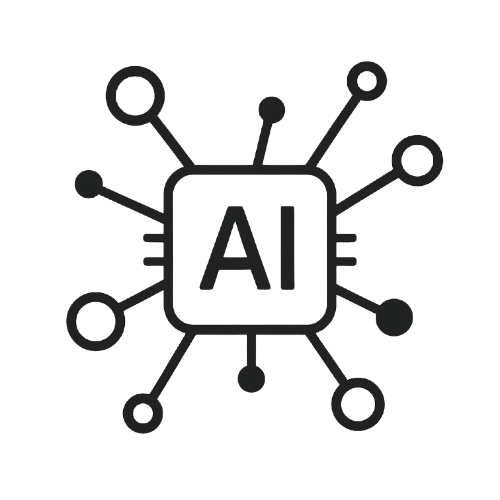Press Release: ELIAS Strengthens Interdisciplinary AI Research Through ELLIS PhD Program
The European Lighthouse of AI for Sustainability (ELIAS) is shaping the next generation of AI researchers—through the ELLIS PhD Program—by uniting cutting-edge technical training with ethical responsibility and a focus on sustainable impact.
Trento, Italy – May 27, 2025
ELIAS is reinforcing its commitment to developing responsible and impactful AI by supporting the Interdisciplinary Track within the ELLIS PhD & Postdoc Program, now marking its first full year.
This pioneering track connects AI experts and researchers whose primary expertise lies outside of machine learning, such as biology, law, climate science, and humanities, fostering collaboration through a unique dual-supervision model that blends technical excellence with societal relevance.
“Through this track, ELIAS is helping nurture AI researchers who not only understand the algorithms, but also the broader systems they influence—equipping them to engage deeply with disciplines such as biology, law, climate science, and the humanities. By fostering interdisciplinary collaboration and dual supervision, the program ensures that technical innovation goes hand in hand with societal insight and responsibility.” said [Nicu Sebe, ELIAS Coordinator].
Reflecting the need for context-aware, inclusive and sustainability-driven research, the track pairs PhD students with supervisors in both AI and a complementary discipline. The 2023–2024 cohort is already delivering high-impact work in areas like synthetic biology and Earth system science — showcasing the program’s transformative potential.
Spotlight on Interdisciplinary Innovation

AI for Molecular Design
Researcher: Kieran Didi – University of Oxford
Kieran’s research explores the transformative potential of generative modelling techniques — such as diffusion models and flow matching — for biomolecular design in synthetic biology. While these methods have revolutionised image generation, their scientific use in fields like drug discovery and protein engineering is still limited by low success rates and controllability.
“This project aims to develop next-generation generative models that are not only powerful in theory but also effective in practice. The goal is to identify the most efficient way to computationally model and design biomolecules so they reliably meet experimental constraints once synthesised in the lab. Key challenges include incorporating fitness measurements into design, modelling complex experimental environments like multi-state density conditions, and leveraging atomistic modelling for greater structural control.”

Foundation Models for the Earth System
Researcher: Sebastian Hoffmann – Max Planck Institute for Biogeochemistry
Sebastian’s research sets out to create WeGen-Land, the first Foundation Model for the Earth’s land surface — a breakthrough for geoscientific AI. Building on the success of Deep Learning Weather Prediction (DLWP) models, which have rapidly outperformed traditional numerical approaches, this project applies data-driven, task-independent techniques to a domain that has seen little comparable innovation.
“WeGen-Land will be trained on petabytes of satellite data using masked autoencoders to extract meaningful representations of the land surface. It will be combined with WeGen-Atmo — ECMWF’s atmospheric Foundation Model — to create WeatherGenerator, the first Earth system Foundation Model based entirely on raw observational data. The research integrates diverse satellite data into a unified model, couples land and atmosphere, and ensures scalability across space and time to support applications like carbon cycle and vegetation forecasting.”
Through their research, Kieran and Sebastian are bridging cutting-edge AI and scientific discovery — from biomolecular design to Earth system modelling — by harnessing advances in machine learning architecture and representation learning.
The Interdisciplinary Track complements the ELLIS Academic and Industry Tracks. The Academic Track includes cross-border supervision and research exchange, while the Industry Track blends academic and industrial mentorship with a six-month placement. Together, they reflect ELLIS’ mission to foster collaborative, impactful, and ethically grounded AI — a mission further amplified by ELIAS, which helps ensure Europe’s leadership in sustainable, responsible AI.
Expanding Reach Across Europe and Beyond
The ELLIS PhD & Postdoc Program now spans over 50 leading institutions across Europe, including key ELIAS partners such as the University of Copenhagen, University of Tübingen, Czech Technical University, ANITI, University of Trento, Università degli Studi di Milano, ELLIS Alicante, Fondazione Bruno Kessler, the Max Planck Institute of Biochemistry, IDEAS NCBR, Istituto Italiano di Tecnologia, ETH Zurich, Inria, Aalto University, and the University of Manchester. International collaboration is further strengthened through partnerships like CIFAR/ELLIS, with a select number of students hosted at top institutions in Canada.
The 2024 call saw 1,479 applicants from 96 countries and 102 nationalities, with nearly 3,200 applicants registered in total. Among 90 selected candidates, the most represented nationalities of the selected applicants were Europeans (51%), Chinese (13%), Indian (8%), Iranian (8%) and Israeli (3.5%) — reflecting the program’s strong global appeal and commitment to inclusivity.
- ELIAS Research Areas 41%
610 applicants (41%) indicated research interests (RI) associated with ELIAS and sustainability.
- Diversity and Inclusion 29%
Of the 90 selected candidates, 29% identify as female.
- ELIAS Representation 38%
Of the 90 selected applicants, 38% will be joining institution within the ELIAS Consortium.
“We’re very pleased to welcome such a diverse group of students and hope they will consider joining the Interdisciplinary Track for cross-domain collaborations.” said [Charlotte Delage, ELIAS Scientific Coordinator at IP Paris & ELLIS PhD Program Coordinator].
Current data for the overall PhD program (pending final confirmation from the newest cohort) indicate the following track distribution: 73% in the Academic Track, 16% in Industry, and 1% in Interdisciplinary, with 22% of our students identifying as female.
A Single Entry Point for Global Talent
Each autumn, prospective students can apply centrally to the ELLIS PhD & Postdoc Program through a unified platform, offering access to a wide network of leading AI labs across Europe. The next call for the 2025-2026 intake will open in October, stay tuned for more information here or on the ELLIS website: https://ellis.eu/news.
In addition to the annual call, faculty members can nominate exceptional candidates year-round: https://ellis.eu/nomination-phd-postdoc.
🌟 Looking Ahead: EDS 2025
ELIAS will be one of the supporters of the upcoming edition of European Doctoral Symposium (EDS), spotlighting interdisciplinary AI research with panels, workshops, and mentoring sessions. The event will feature strong representation from the ELIAS Network among its speakers. More information can be found here: EDS 2025 – Robust AI, EDS 2025
Access Press Release here: ELIAS Strengthens Interdisciplinary AI Research Through ELLIS PhD Program